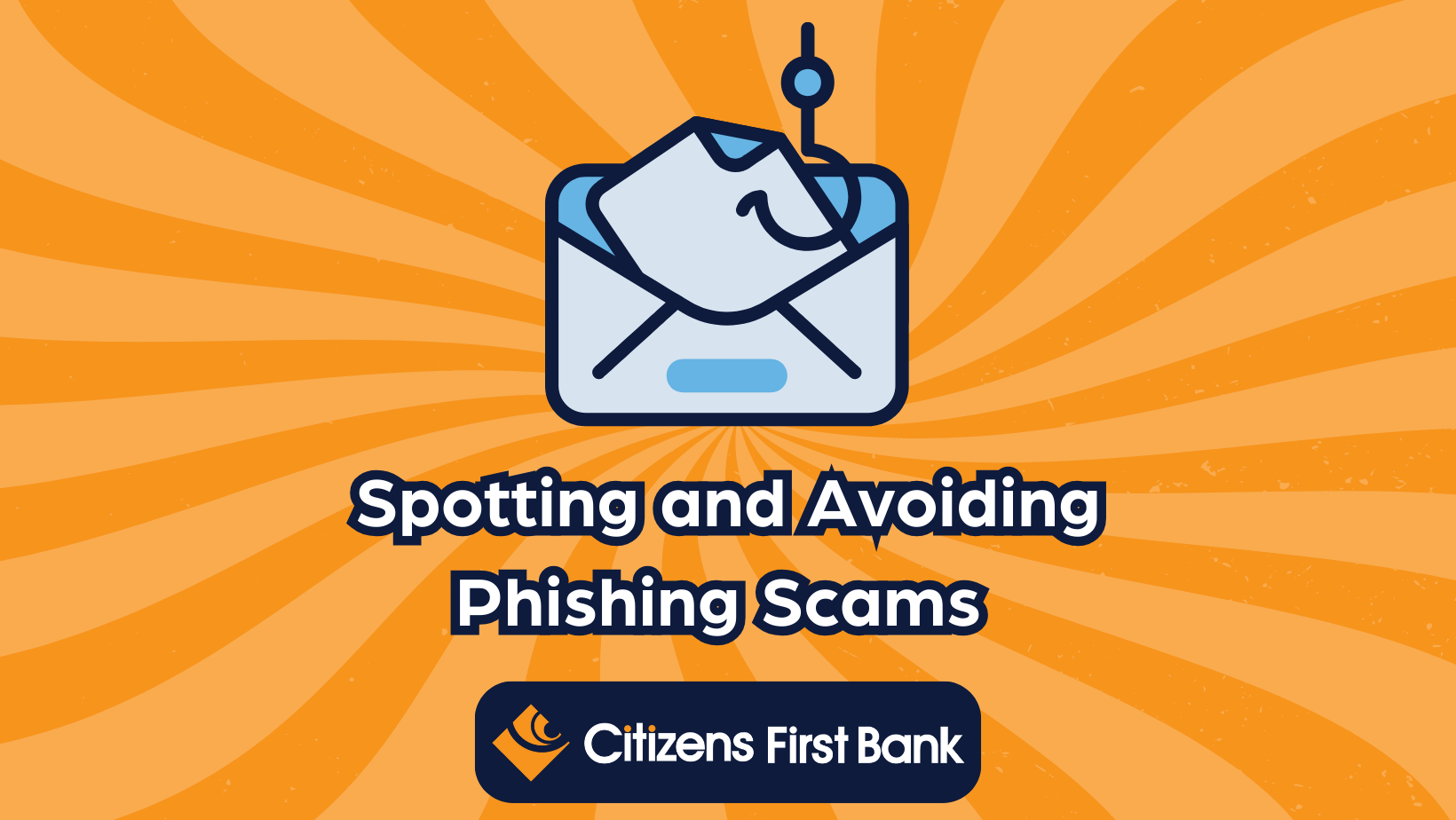
October 16, 2023
In our increasingly digital world, cybersecurity has become more critical than ever before. As technology advances, so do the tactics of cybercriminals. One prevalent threat that individuals and businesses face is phishing scams. These scams are deceptive attempts to obtain sensitive information, such as passwords and credit card details, by posing as trustworthy entities. Citizens First Bank is dedicated to ensuring your online safety. We’ll guide you through spotting and avoiding phishing scams to protect your financial well-being.
Phishing scams often come in the form of emails, messages, or websites that appear to be from reputable sources. Cybercriminals use clever tactics to trick recipients into revealing personal information. These messages might contain urgent requests, offers that seem too good to be true, or warnings about account security.
One of the first signs of a phishing attempt is an unfamiliar or suspicious email address. Legitimate organizations, including Citizens First Bank, will always use official domain names in their email addresses. Be cautious if the sender’s address contains misspellings or extra characters.
Phishing emails often use generic greetings like “Dear Customer” instead of addressing you by your name. Additionally, they might contain spelling and grammar mistakes. Legitimate communications from organizations like Citizens First Bank are usually well-crafted and error-free.
Hover your mouse over any links in the email to preview the actual URL. If the link address looks unfamiliar or doesn’t match the official website of the supposed sender, it’s likely a phishing attempt. Avoid clicking on such links to prevent malicious software installations or unauthorized access to your accounts. This will play a huge factor in avoiding phishing scams.
Phishing emails often create a sense of urgency, pressuring recipients to act quickly. Be cautious if an email requests your personal or financial information, such as passwords or Social Security numbers. Legitimate organizations, including Citizens First Bank, will never ask for such information via email.
If you receive an email prompting you to log into your bank account or any other online service, ensure that you’re on the official website. Check for “https://” in the URL, indicating a secure connection, and verify the website’s authenticity before entering any sensitive information.
Regularly update your operating system, antivirus software, and other security tools. Cybersecurity threats evolve, and updated software can help protect your devices from the latest phishing techniques.
Cybercriminals often gather personal information from social media profiles to craft convincing phishing emails. Be cautious about the information you share online and review your privacy settings to limit who can see your personal details.
Phishing scams can occur not only through emails but also via pop-up ads on websites. Avoid clicking on pop-ups, especially those prompting you to download or update software. Close pop-ups using the ‘X’ button in the window rather than clicking within the pop-up itself.
At Citizens First Bank, your online safety is our priority. By understanding the tactics used by cybercriminals and staying vigilant, you can protect yourself from phishing scams. Remember, if something seems suspicious, it’s better to double-check with the official organization before taking any action. Stay informed, stay secure, and enjoy a worry-free online banking experience with Citizens First Bank.
Citizens First Bank – Member FDIC